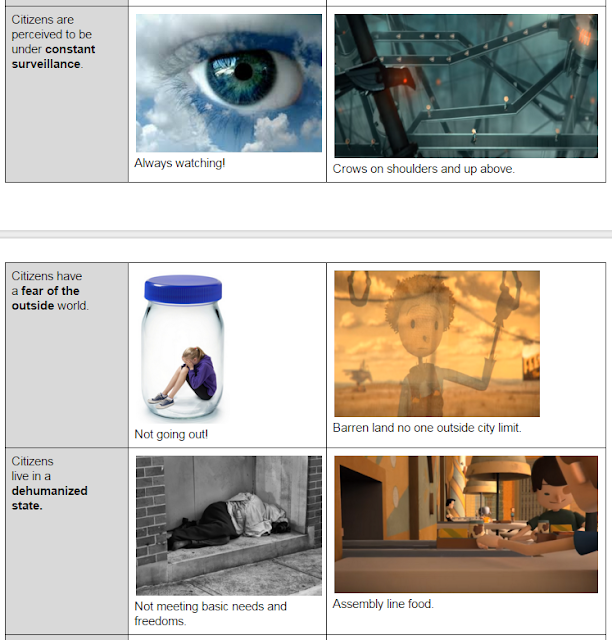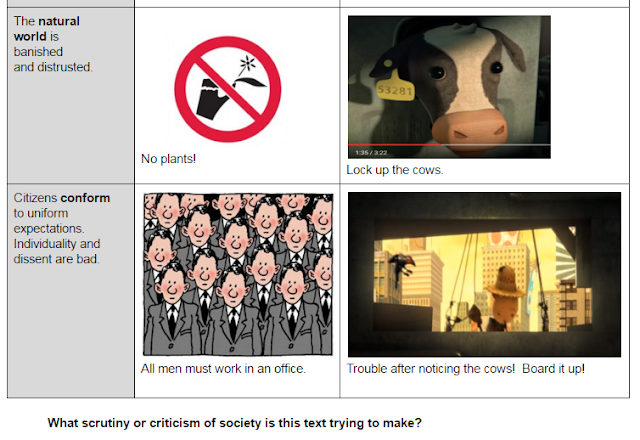Focus Question: How important is it for people to have choices in their lives?
Before reading the novel, students viewed a variety of images to record what they think they know about Utopias and Dystopias.
Then they watched two videos which featured utopias:
- The Train scene from Zootopia (Zoo creatures)
- The Big Rock Candy Mountain (Stereotypical Hobo)
Students recorded what they saw and then explained why the item made the utopia an ideal world for the occupants.
We formed a definition based on this info:
- Utopia: A place, state, or condition that is ideally perfect in respect of politics, laws, customs, and conditions.
Next, we watched The Scarecrow and recorded what we saw and formed some questions about what we WANT to know:
We realized that there were many more characteristics found in a Dystopia that we were missing so we completed the chart below:
Students shared their ideas and used these ideas as a starting point:
Next we read "The Lottery" to try to answer our WANT to KNOW Questions.
We read "The Pedestrian," by Ray Bradbury and answered the questions below:
"The Giver": How important are choices?
We have begun to read "The Giver," by Lois Lowry.
Students are completing Readers Responses as starting points for discussion.
After each chunk of reading students will form small discussion groups and complete a small discussion task.
These discussion tasks will help them complete a persuasive zine (mini magazine)
Students will write a persuasive essay to compliment their zine.
See READERS RESPONSE activities below:
We read "The Pedestrian," by Ray Bradbury and answered the questions below:
- How would you describe the atmosphere established in the opening paragraphs of the story?
- what does Mead's "brightly lit" house tell us about him? What evidence in the story as a whole supports this view?
- The author describes mead's walk as being "...not unequal to walking through a graveyard..." In what ways is the city like a graveyard?
- How would you describe life in this city in the year 2053? Consider the story carefully and identify specific examples of Bradbury's use of language that have enabled you to reach you r conclusion.
- The voice from the police-car notes: "no profession" in response to the pedestrian's statement that he is a writer. What does this particular utterance reveal about the society in which the story is set?
- When did you realize that there was no-one driving the police car? Why is it that the identity of the voice in the car is kept anonymous? Who do you think is actually "controlling" the car?
- Why is Mead arrested? What is his punishment to be? Why? How is the repetition of the word "empty" particularly ominous at the end of the story?
"The Giver": How important are choices?
We have begun to read "The Giver," by Lois Lowry.
Students are completing Readers Responses as starting points for discussion.
After each chunk of reading students will form small discussion groups and complete a small discussion task.
These discussion tasks will help them complete a persuasive zine (mini magazine)
Students will write a persuasive essay to compliment their zine.
See READERS RESPONSE activities below:


















No comments:
Post a Comment